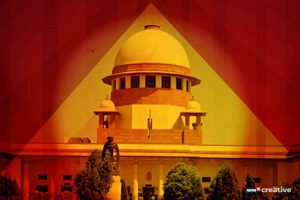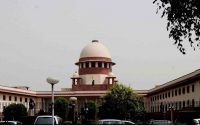UPSC Marks Can’t be Given Under RTI: Supreme Court Declines to Review its Order

Source-news18.com
The Union Public Service Commission (UPSC) is not obligated to disclose raw and scaled marks of civil services examinations under the Right to Information (RTI) Act, the Supreme Court has ruled.
The top court has refused to reconsider its ruling whereby it had earlier cited confidentiality and integrity of the UPSC exams to put the scores of India’s most prestigious exam outside the purview of the ‘right to know’.
A bench headed by Justice Uday U Lalit has now dismissed a bunch of review petitions filed against the court order in February. “We have gone through the contents of the review petitions and do not find any error apparent on the face of the record to justify our interference in review jurisdiction. These review petitions, therefore, stand dismissed,” stated the order passed recently.
The court reaffirmed its judgment of setting aside the orders passed by the Delhi High Court and dismissing all the writ petitions filed by the UPSC aspirants seeking disclosure of marks under the RTI
In February, the apex court had noted that disclosure of marks could have some severe negative impact on the evaluation process and not only the prestige, but the very integrity of the system could be compromised.
“Weighing the need for transparency and accountability on the one hand and requirement of optimum use of fiscal resources and confidentiality of sensitive information on the other, we are of the view that information sought with regard to marks in Civil Services Exam cannot be directed to be furnished mechanically,” it had held.
The court also underscored the difficulties expressed by UPSC that disclosure could lead to unnecessary resentment, litigation and revealing the identity of evaluators, thereby putting in peril the integrity of the process and inviting hordes of litigation.
“Situation of exams of other academic bodies may stand on different footing. Furnishing raw marks will cause problems as pleaded by the UPSC as quoted above which will not be in public interest,” said the court.
It had, however, added that if a case is made out where the court finds that public interest requires furnishing of information, the court is certainly entitled to do so.



